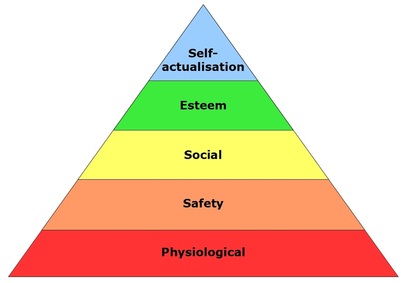|
I started so well… what happened?
If you’ve never asked this of yourself you’re definitely the exception and not the rule. Most of us have at some point struggled with this question or a variation of it. Other common versions include, ‘Why can’t I stick with it?’ ‘Why does this happen every time?’ ‘What’s it going to take?’ And for those of you who have really had enough… ‘What the f#%k!’ So why are so many of us cursed with an inability to hang in there when it comes to changes like diets and exercise programs? Why do many people not even last a week before they quit? And why do so many of us fall into a cycle of quitting after 6-12 weeks? When we start so well and actually feel better for it, it makes no sense that we would quit right? Well the bad news is that there is no one reason why we do this. There are some common themes that pop up regularly though. I see the following three all the time…
1 Comment
There are no short cuts! It's amazing how many people will wholeheartedly agree with this statement and in the next breath plunge head first into the next 'quick fix' solution offered by Dr Oz. You see although we know deep down that there aren't really any short cuts, the temptation of the possibility of there being a short cut is often too much for us to resist. "But what if it works" we say to ourselves as we attempt to justify our position. The funny thing is that in a way short cuts might work... The bad news is that even if they do the results are unlikely to stick around.
Why? Well you see, making long term changes requires that we develop positive habits. While rapid transformations yield rapid results what they don't do is allow the habits we develop to really set in and take hold. What you get is a situation where you may have made a physical change, but mentally you are still in a similar position to when you started. This means that there is still a good chance that old behaviors will once again set in and you will return to your starting position. If change takes a while however then we are giving our neural pathways a chance to strengthen and as a result we also achieve a mental transformation. Remember neurons that fire together wire together, meaning that the longer we do something the more chance we will have of continuing to do it. So the message is... Take your time and look at change as lifestyle and not a destination. The longer you take to get there the more likely it is that your results will stick around in the future. Listen to Andrew Ellis talk more about this concept below... Listen to more of what Andrew has to stay here... Don't think of willpower in the same way as you think of a muscle? Maybe you should. Self control is often what makes the difference between success and failure. Prominent psychologist Dr Roy Baumeister, Professor of Psychology at Florida State University is co-author of 'Willpower: Rediscovering the Greatest Human Strength'.
Are protein requirements the same for women as they are for men? After studying men, Massey University scientists are seeing if protein also assists women athletes after strenourous exercise
Calorie counting, exercise advice and motivational tips... from a robot? Autom gives dieters advice about calorie counts, exercise goals and motivation. It builds up knowledge over time and can tailor questions and advice for individual needs. It's about to go on the market in the US.
“You are the embodiment of the information you choose to accept and act upon. To change your circumstances you need to change your thinking and subsequent actions.” - Adlin Sinclair
The predominant message that arises from discussing motivational theories and perspectives is that THERE IS NO ONE ANSWER ABOUT HOW AND WHY WE BECOME MOTIVATED. What these theories do provide us with however is a range of points to consider. As we now know motivation can manifest itself in a variety of ways depending on the individual. Because of this it is important that you take out of this series WHAT IS RELEVANT TO YOU. Do you for example feel as if physiological needs dictate your thinking and behaviour? If so instinct theory, drive theory and the beginning levels of Maslow’s hierarchy will be most relevant to you. Maybe you believe that incentives and goal-setting are more relevant, in which case you will take more from these theories. Maybe you feel that exploring a conflict in thinking regarding a specific issue will kick-start you into action, in which case cognitive dissonance theory may be more relevant. Maslow's Hierarchy of Needs is a motivational theory developed by the American psychologist Abraham Maslow. It is one of the most widely discussed and referenced theories on motivation.
Maslow’s perspective is a wide-ranging overview of human motivation. It incorporates a blend of biological and environmental motives which represent the increasing complexity of human requirements. The theory is based on five hierarchical levels. Each level represents an increasingly complex set of human needs. The theory states that basic needs must be met, or at least partially met, before more advanced or evolved needs can be addressed. These needs are arranged in a pyramid form and indicate the varying strength and importance of each. The basic needs or requirements that are vital for daily survival form the bottom level of the pyramid and are the most important. The needs that are less important to survival or aren’t relevant to survival are higher up the pyramid. The following describes the five levels starting with the bottom of the pyramid, or level 1: Physiological. These needs are the literal requirements for human survival and form the largest and most important part of the hierarchy. Metabolic needs such as food, water and air as well as protective elements like clothing and shelter are all included in this level. If these most basic of needs aren’t met the hierarchy becomes obsolete as we cease to function. Goal setting theory is based on the idea that we can sometimes have desires to attain clearly identifiable goals. As a result an individual may become motivated to pursue a course of action in an attempt to reach this goal. In most cases the end goal is what provides the reward rather than the action or journey we take to attain it. The more effective a goal is, the more motivated someone will be to achieve it. The effectiveness of a goal is influenced by three key features, these being: proximity, difficulty and specificity.
Firstly, with regard to proximity, an ideal goal should be achievable within a reasonably short amount of time. What is reasonable will vary depending on the person, but in general if achieving a goal seems like it will take forever it probably will. If we can see the finish line we are more likely to reach it. If we can’t see the finish line, things can often seem hopeless because we feel as if we are drifting and getting nowhere. I know many people, myself included, have felt this way about past goals. Many people will be feeling this way now regarding their current goals and aspirations. The ‘BUT game’ is a simple way to explore the consequences of making a specific choice. It will not tell you which choice you should make but rather it will get the FACTS out in the open. What you choose to do from here will be your ‘more informed’ choice to make. Here’s how it works…
Firstly there needs to be some awareness of the choices you’re making, or are about to make. For example if you have promised yourself that you will go for a run after work and you will do this immediately after arriving home, you need to be aware that this is the plan. You also need to pre-empt or be aware of any additional choices that will present themselves around this time e.g. instead of leaving straight away I will sit down for 5 minutes and watch TV, or I will just grab a quick snack before going. You will know what these ‘alternate’ choices are if you really think about them. They wont be anything new or exotic but rather they will be the same old things you would usually do or have done in the past. Cognitive dissonance theory (which refers to a conflict in thinking) is one of the most influential theories in social psychology and has many applications within the field of motivation.
The term cognitive dissonance may refer to a feeling of discomfort caused by having conflicting ideas simultaneously. Alternately, discomfort may occur when our beliefs are in conflict with the way we behave. It is sometimes referred to as ‘the psychological squirm’, in reference to the uncomfortable feelings we often experience when contemplating two incompatible viewpoints. The theory proposes that when people experience discomfort, they have a motivational drive to reduce the conflict causing it. In the context of health and fitness, consider a person who would like to lose weight. On one hand they think or believe that they would like to look and feel better, yet, on the other hand, they continue to eat junk food and not exercise. This represents a conflict between where the person is now, versus where they would like to be. Another classic example often discussed in the context of this theory is the example of someone who smokes. A person may wish to be healthy. They believe smoking is bad for them, yet they continue to smoke. |
AuthorMatt Williams Archives
December 2015
Categories
All
|
|
Exercise Change© 2011-2022 ● [email protected] ● 021 107 1270 ● (int) +64 21 107 1270
|










 RSS Feed
RSS Feed
